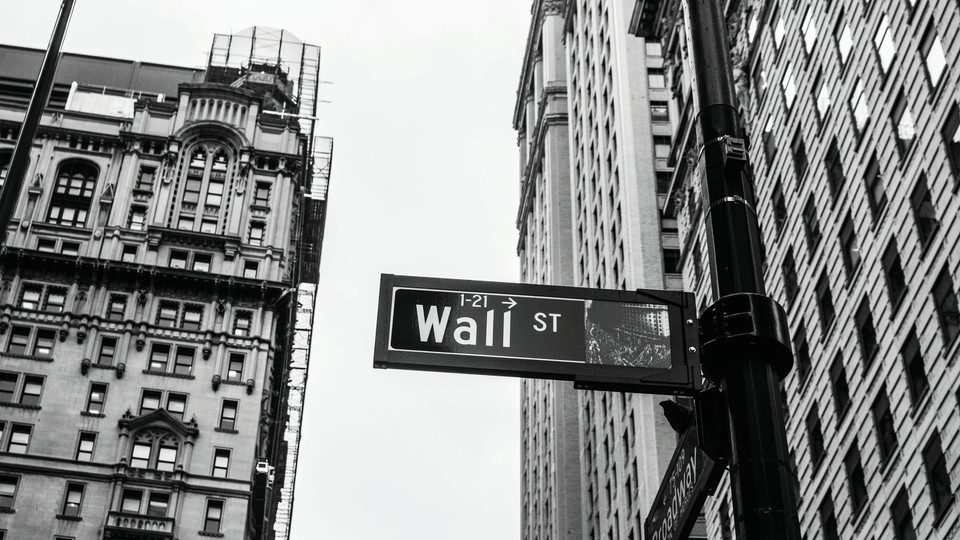
Rising Tide
How Does An IPO Affect Your Community?
Based on research by Alexander Butler, Larry Fauver and Ioannis Spyridopoulos
How Does An IPO Affect Your Community?
- IPOs have a positive spillover effect on the local economy in which a company is headquartered.
- After an IPO, zip codes close to a company’s headquarters see certain home prices and consumer spending rise, while more new businesses and jobs are created.
- The positive effect comes from the change in listing status, not from capital raising.
A massive company announces plans to bring its headquarters to town, and the locals can’t stop grumbling. The added traffic. The noise. The shifts in neighborhood routine as a giant new facility gets up and running.
Then the company files for an IPO.
Over the next two years, the traffic and dust may well be forgotten as residents watch their local economy transform. Anecdotal evidence suggests that the mere change in a company’s listing status, along with the liquidity it brings its shareholders, can significantly influence local economies.
That was certainly the case with Facebook in 2012, when CEO Mark Zuckerberg helped create a thousand new millionaires and a dozen new billionaires. In the six months following Facebook’s IPO, the newly rich drove up real estate prices in the San Francisco Bay area by more than 15 percent as their previously illiquid stock wealth became liquid. Two and a half decades earlier, Dell’s 1988 IPO created “Dellionaires” who got rich off their shareholdings and promptly moved into McMansions in the Austin area, forever changing the city.
But were these spillover effects isolated incidents — or the norm? In a recent study, Rice Business professor Alexander W. Butler set out quantify the impact of spillover effects on local economies.
Collaborating with Larry Fauver of the University of Tennessee and Ioannis Spyridopoulos of American University, Butler found that Facebook’s and Dell’s impacts were not one-offs: IPOs typically spark significant positive spillovers in local economies. What’s more, the team determined that it is the listing decision, rather than actual capital raising, that boosts local labor markets, business environments, consumer spending and real estate.
But why? An IPO doesn’t create a new company. It does, however, generate significant liquidity for the firm, for employees and for other shareholders who go forth into the community to spend their new cash. Investors’ wealth also rises if a firm’s stock price climbs after listing, as does a firm’s wealth as it raises new capital.
To be certain that it’s not just a firm’s raising of capital that causes these spillovers, Butler and his team also looked at the effects of seasoned equity offering (SEO) activity, which doesn’t involve a change in a company’s listing status. What they found is that the effect of SEOs on local economies is insignificant. So capital raising alone is not enough.
To reach their conclusions, Butler and his colleagues selected 1,365 zip codes that had at least one IPO between 1998 and 2015. (The years 1999, 2000 and 2003 were excluded due to a lack of income data at the zip code level.) They also identified zip codes that were two miles, five miles and ten miles from a newly public company’s headquarters.
Then they compared their selected zip codes to control zip codes in the same county using a matching process to compare “apples to apples.” The team compared figures such as changes in home prices, the number of new mortgages, zip code business patterns, credit card spending, and income and wages for the two years following an IPO.
Analyzing these data, they found that when an IPO occurs, each $10 million in proceeds leads to an extra 0.7 new businesses in the surrounding area and 41 new local jobs. And while the price of expensive homes in the newly public company’s zip code didn't increase, the prices of expensive homes in other zip codes within two miles of headquarters did rise — by $3,900 for the average expensive home valued at $590,000.
Prices were also higher in zip codes two to five miles away from headquarters, but less so. Growth of home prices, they discovered, gets a boost after the lockup period ends and shareholders can sell their stock, supporting the hypothesis that changes in investor liquidity cause that spillover. Further evidence of this came when they found that home prices climb even more when a firm’s stock price jumps after the IPO.
But IPOs are not all good news for communities. Findings also showed IPO activity increases the odds that middle- to lower-income residents may have to move to lower-income zip codes. In the years following Facebook’s IPO, workers in the Bay area such as police officers, teachers and firefighters were priced out of the housing market and relegated to long commutes to work.
Facebook has taken notice. The Chan Zuckerberg Initiative, a charitable foundation Zuckerberg cofounded with his wife, Priscilla Chan, has donated $3.6 million toward the city’s housing crisis.
As future companies go public, leaders could be well served to recognize Butler’s team’s findings. Yes, when their firm gains better access to financial markets, they’re really are helping lift up the local economy — just not everyone who’s living in it.
Alexander W. Butler is a professor of finance at Jones Graduate School of Business at Rice University.
To learn more, please see: Butler, A.W., Fauver, L., & Spyridopoulos, I. (2019). Local economic spillover effects of stock market listings. Journal of Financial and Quantitative Analysis, 1-56.
Never Miss A Story


